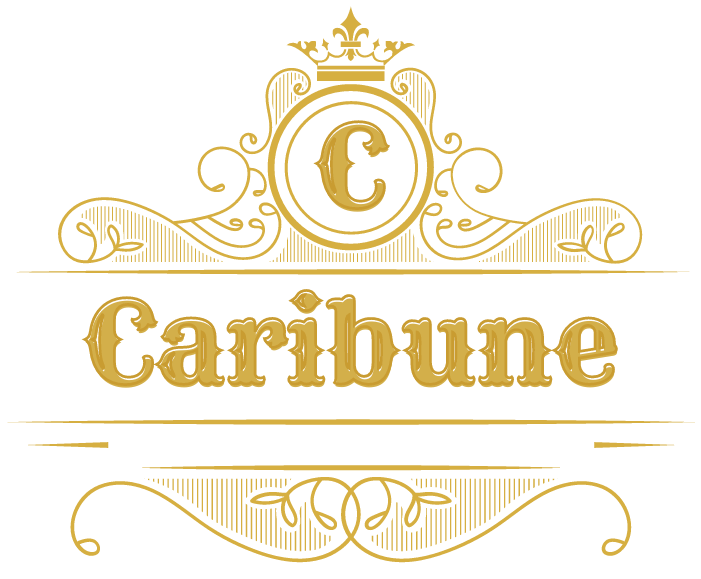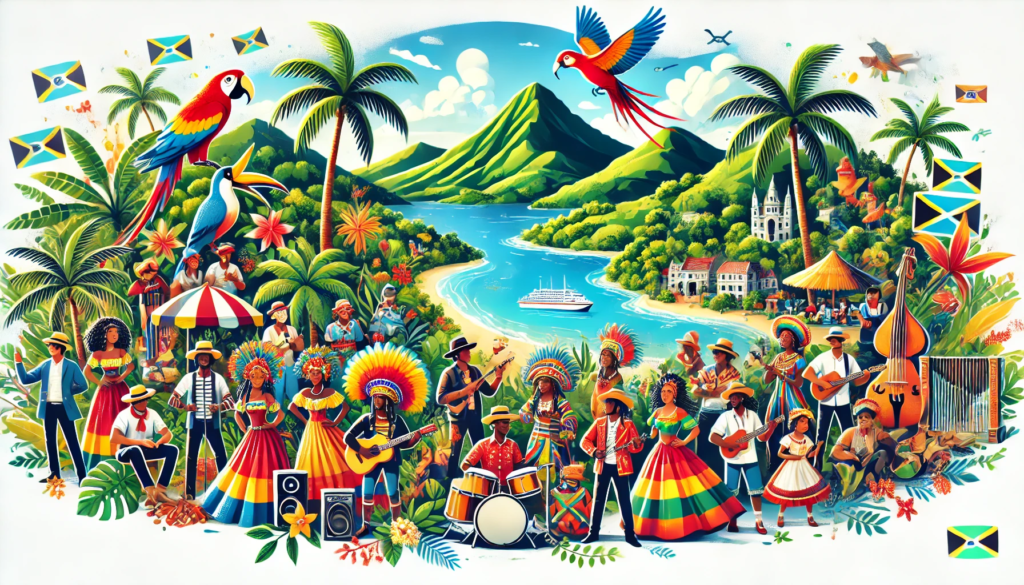The Caribbean region is often viewed as a single entity, with its people and culture being homogenous.
However, upon closer examination, one would discover that the Caribbean is a region of vast diversity, and its people hail from different ethnic and cultural backgrounds.
The Caribbean constitutes an archipelago of more than 7000 islands, where various dialects of English, French, Spanish, Dutch and Creole languages are spoken.
This multilingual and multicultural region has witnessed the emergence of various religions, music styles, culinary specialties, literature and artistic forms.
Let us delve deeper into the intricacies of Caribbean diversity to gain a better understanding of this unique part of the world.
Introduction: Defining Cultural Diversity In The Caribbean
The Caribbean is a melting pot of cultures, languages, and religions.
This diversity is shaped by historical and contemporary factors, including the region’s colonial past, diaspora patterns, and economic development.
As a result, the Caribbean has a dynamic and complex cultural landscape, with roots in Africa, Europe, South Asia, and indigenous populations.
This blog will explore the diverse peoples and cultures of the Caribbean, examining how they coexist and intersect in a rapidly changing world.
From exploring the region’s unique art, music, and literature to understanding the role that religion plays in shaping Caribbean identities, this blog will offer a comprehensive picture of the rich cultural tapestry that is the Caribbean.
Ethnic Composition Of The Caribbean Population
The ethnic composition of the Caribbean population is an important aspect of its diverse and unique culture.
As mentioned earlier, the vast majority of Caribbean ancestry is mixed, which has contributed to a rich and varied heritage.
However, there are also sizeable communities of Indigenous peoples and Africans, who form the core of the region’s cultural identity.
Beyond these groups, there are also significant numbers of people of Asian and European descent, as well as those with Middle Eastern and Latin American roots.
Each ethnic group has brought with it its own customs, traditions, and beliefs, shaping the Caribbean into a multiplicity of cultural communities.
Despite their differences, the people of the Caribbean have developed a strong sense of cultural solidarity, formed through shared experiences and a common history of colonialism and struggle for independence.
In the next section, we will explore the role of mixed ancestry in the Caribbean and its impact on culture and social identity.
The Role Of Mixed Ancestry In The Caribbean
The Caribbean is home to a diverse range of ethnicities, and many individuals in the region identify with multiple cultural and ancestral backgrounds.
This mixed ancestry plays a significant role in Caribbean culture, influencing everything from art to food to music.
Building solidarity within the Caribbean community requires an understanding and acknowledgment of this multicultural heritage.
Colonial history has impacted the region significantly, resulting in an amalgamation of cultures, people, and races.
The Afro-Caribbean experience of non-entitlement is further compounded by the complexity of mixed ancestry in the region.
Despite this, the unique African cultural family units in the Caribbean continue to thrive.
Understanding the role of mixed ancestry in the Caribbean is essential in evaluating the challenges and benefits of managing a diverse workforce in the region.
Additionally, it is crucial to examine its impact on the social and demographic vulnerabilities inherent in Caribbean life.
Overall, the diversity of Caribbean people and cultures makes the region a fascinating place to explore and understand.
Building Cultural Solidarity Within The Caribbean Community
Building cultural solidarity within the Caribbean community is an important step towards embracing the diversity of the region.
With a mix of ethnicity, religion, language and culture, it is essential to find common ground and foster understanding.
The Caribbean is the perfect amalgamation of different cultures, and it is essential to build bridges of cultural solidarity to maintain this richness.
The unique blend of African, European and indigenous cultures offers a fantastic opportunity to celebrate and embrace differences, promote unity and understanding to create a shared vision.
Cultural solidarity can strengthen the Caribbean community, offering a strong sense of comradery and inclusion, and creating a foundation for growth, development and prosperity.
Components Of Caribbean Culture: Art, Music, Food, Literature, Politics And Social Trends
Caribbean culture is rich and diverse, encompassing several aspects that are representative of its people, such as art, music, food, literature, politics, and social trends.
The cultural roots come from British, French, Spanish and African influences, and the region’s history provides insight into why it is so varied.
Caribbean art, for instance, reflects the region’s history and cultural evolution, drawing inspiration from different sources.
Music is a vital part of Caribbean culture, with various genres that celebrate the islands’ unique blend of influences.
Food is another essential component of Caribbean culture, and its diversity reflects the region’s history and its people’s roots.
Literature provides a window into the Caribbean’s social and political issues and celebrations, and the region’s complex blend of cultures, people and races.
Political and social trends are also integral components of Caribbean culture, from political mobilization to cultural policy that promotes the distinctive identity and spirit of the Caribbean people.
By understanding these various components, the Caribbean community can continue to build cultural solidarity while celebrating its unique diversity.
African Cultural Family Units Unique To The Caribbean
The Caribbean stands out as a hub for diverse African cultural family units.
Despite being of African descent, the unique situation of slavery and the transatlantic slave trade infused a mix of African cultures with elements of European, Asian, and indigenous cultures.
These multicultural blends have given rise to numerous cultural family units unique to the Caribbean.
Family structures such as “extended families,” “regional cousins,” and “kinship networks” are essential in creating strong social structures for Afro-Caribbean communities.
These family units work hand in hand with other social institutions, such as the church, in reinforcing the African cultural heritage in the Caribbean.
Through diverse family structures and social institutions, the Caribbean has been able to maintain its identity and cultural heritage for generations.
Afro-Caribbean Experiences Of Non-Entitlement
Afro-Caribbean experiences of non-entitlement are an important aspect to consider when examining the diversity of Caribbean cultures.
As previously mentioned, the diverse identities within the Caribbean are complex and multifaceted, and this includes issues of race, culture, language, religion, region, and more.
Despite their unique backgrounds, common themes have emerged among Afro-Caribbeans, including feelings of not being entitled to certain opportunities or privileges.
This can be attributed to a history of colonialism and systemic oppression, which has impacted generations of Afro-Caribbeans.
While these experiences can be challenging, many Afro-Caribbeans express gratitude for the opportunities they have had and continue to work towards building cultural solidarity within their community.
Understanding and acknowledging these experiences is critical to building a more inclusive and empathetic understanding of Caribbean cultures.
Colonial History And Its Impact On Caribbean Cultures
The legacy of colonialism in the Caribbean has had a profound impact on the diversity of cultures and people in the region.
The forced migration of enslaved Africans, indentured laborers, and rural or urban workers has resulted in a melting pot of ethnicities and languages throughout the Caribbean.
The demise of the indigenous groups added to this mix, creating a complex and varied society.
Despite shared histories and experiences, the legacies of colonialism have also created divisions and inequalities within the Caribbean community.
However, amid the challenges, there has been an emergence of a unique Caribbean cultural diaspora influenced by both indigenous Caribbean and African descendants.
This shared culture is built on recognition of diversity and the value of harmony that has transcended colonial barriers.
The colonial history of the Caribbean is not only a part of history but also an integral component of the region’s cultural identity.
Religious Diversity In The Caribbean
Religion has played a significant role in shaping the Caribbean’s diverse cultural landscape.
While Christianity is the predominant religion, Islam, Hinduism, Rastafarianism, and traditional African religions are also practiced.
The fusion of these different religious beliefs and practices has contributed to the creation of unique cultural expressions seen in the Caribbean.
For example, the music associated with Rastafarianism, such as reggae, has become a globally recognized symbol of the Caribbean.
Understanding the religious diversity of the Caribbean is crucial in appreciating the complexities of its cultural identity.
It highlights the dynamic nature of Caribbean cultures and the influences that have shaped them throughout history.
The Complex Blend Of Cultures, People And Races In The Caribbean
Section 10 of our blog series on the diversity of Caribbean people and cultures focuses on the complex blend of cultures, people, and races in the region.
This is a result of the history of pre-Columbian indigenous populations, colonization, decolonization, and migrations.
The cultural diversity of the Caribbean brings to consciousness the nature of fused or blended cultures, as distant neighbors share many similarities, yet maintain their unique cultural differences.
This awesome complexity of Caribbean life and culture has the capacity to build bridges not only among classes and races of people from various Caribbean countries but also with other cultures around the world.
Understanding this complexity is crucial for building cultural solidarity within the Caribbean community and beyond.
Additionally, this section explores how American assumptions about race and culture in the study of societies such as France are significant to understanding the Caribbean.

